How To Clean A Macbook Of Viruses
In this article, we'll look at common problems and 5 fixes for these MacBook and MacBook Pro battery problems.
Why is my Mac battery draining so fast?
There can be several reasons. For example, different browsers consume different amounts of battery power.

In some cases, a recent upgrade to a new macOS can be the cause and, therefore, a temporary problem. It either stops doing this in its own time, or a new macOS patch/upgrade is sent through, and once downloaded, the problem goes away. It is known to happen around the time of new releases and is an issue many Mac owners anticipate.
However, in other cases, the issue is less widespread and more localized. We cover five of the most common problems and fixes for Mac users, particularly MacBook owners who have suffered from a fast-draining battery.
5 solutions for Mac battery problems
1. Check and change Battery Settings
In the top menu, where the battery appears, it's always useful to check out battery percentage so that you can clearly see how fast it's draining.
If you click on the battery icon, it will show which apps are using the most power.
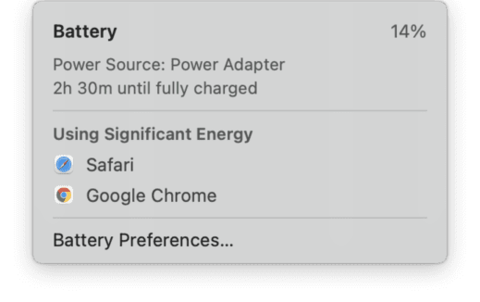
- From here, click Battery Preferences.
- Within this, you've got the option to set the amount of time your display should wait before it turns off and dim the display when a Mac is not connected to power.
2. Manage Power Adapter Preferences
It is always useful to do so when trying to conserve battery power on any device, and it could be a lifesaver if you happen to be out without a power cord or plug.
- From the Apple menu;
- Go to System Preferences > Battery.
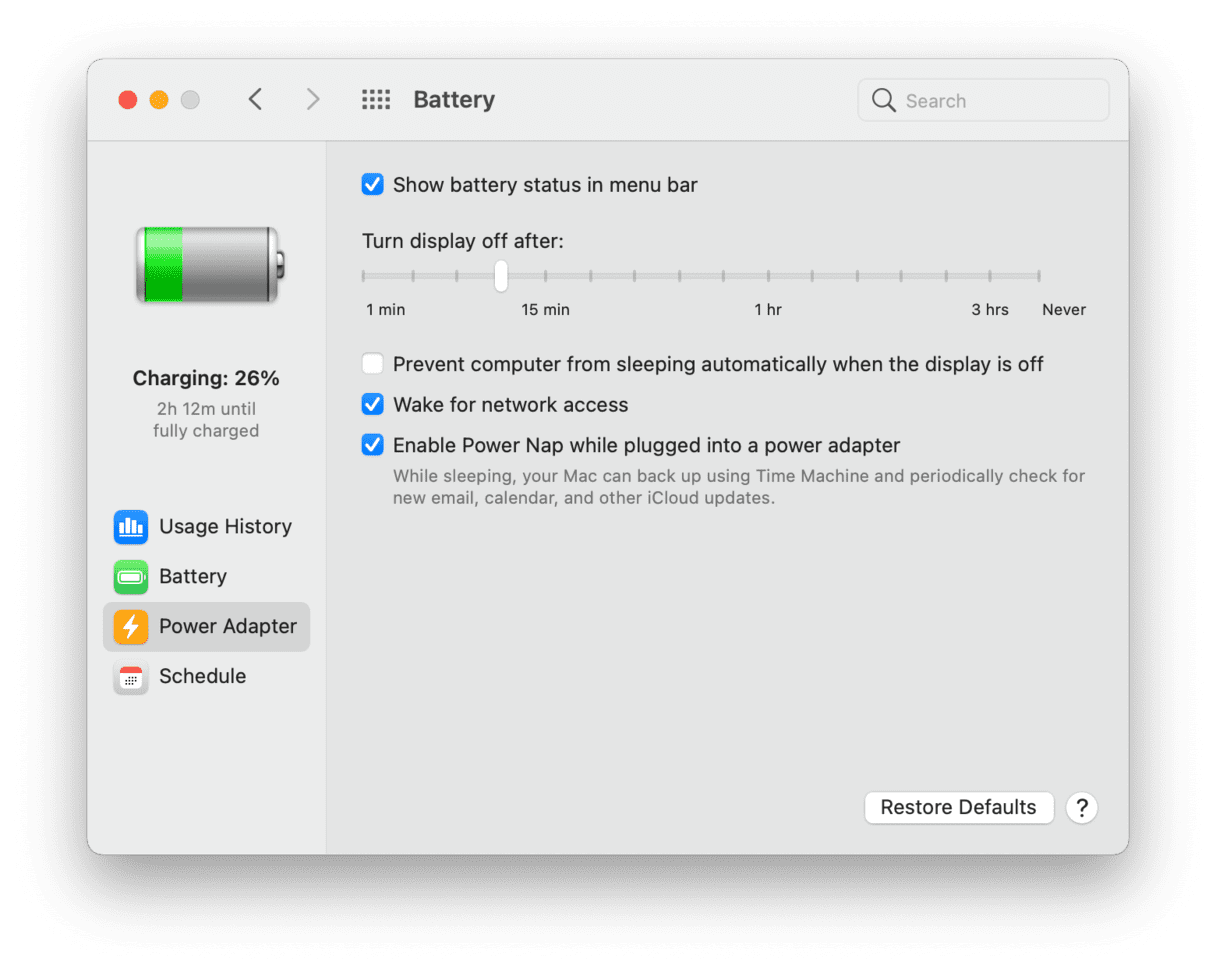
- Now select the Power Adapter tab.
- A slider should be on this screen: slide the scale along to ensure the screen goes dark after a reasonable amount of time when not being used, which should reduce battery drainage.
- Uncheck the box next to "Enable Power Nap while plugged into a power adapter."
3. Find out what is using energy
When investigating a fast-draining battery, it's always useful to know what is using energy in the first place. To find out, follow these steps:
- Go to Applications;
- Click on Utilities > Activity Monitor;
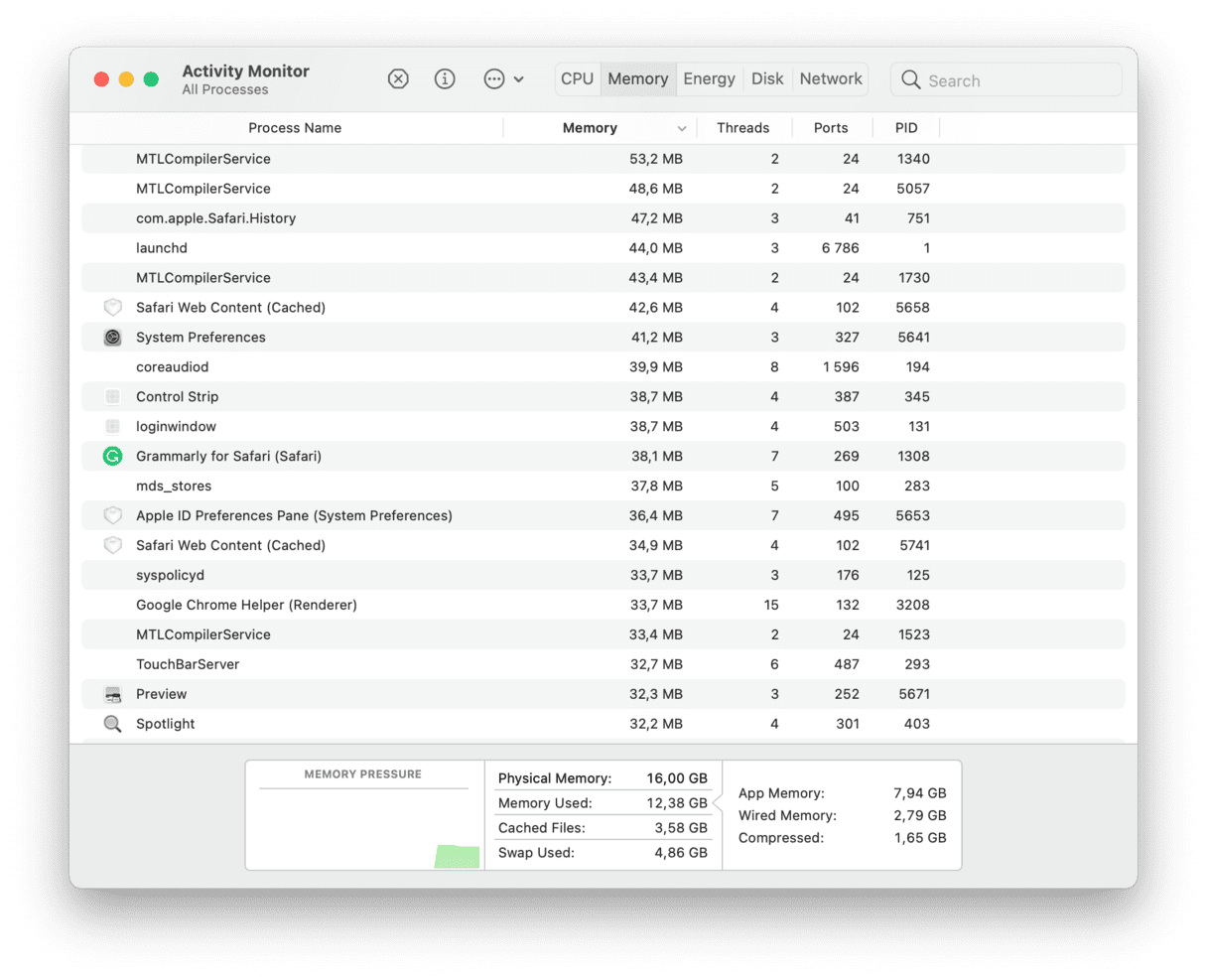
- Activity Monitor will show what is taking up CPU and GPU;
- Giving you the ability to close anything that is clearly taking up too much battery power.
4. Identify background apps
Behind the scenes, most Macs can run dozens of apps without us realizing it. Some of these could be running because we forgot about them. Others open during the startup sequence. And others, without us knowing it, could be malware or ransomware or other viruses, either designed to steal data or steal processing power to mine cryptocurrency or even run remote DDoS attacks.
Now, clearly, that sort of thing isn't ideal, and you won't want apps running that drain power, steal data, or use your Mac for something you aren't even aware of. To solve these potential battery draining problems, we recommend taking the following steps:
- Download CleanMyMac X (for free, here).
- Click on Uninstaller.
- It will run a scan of every app on your system: Either click to rest or safely uninstall everything you don't need or aren't aware of.
Also, click the Optimization tab in CleanMyMac. You'll find the tool called Launch Agents.
It displays tiny background applications otherwise nonvisible to a user. This very often gets exploited by advertising scripts — a sure way to drain your battery power.
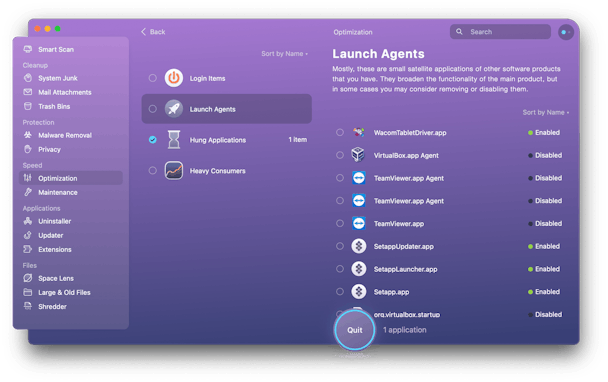
As you can see, these items can be easily switched off using the Disable button.
5. Reduce screen brightness
The brightest lightbulbs consume more energy, the same is true for your screen's lighting. In your Preferences, look up Displays settings and do a couple of tune-ups there. Make sure to tick the "Automatically adjust brightness" checkbox.
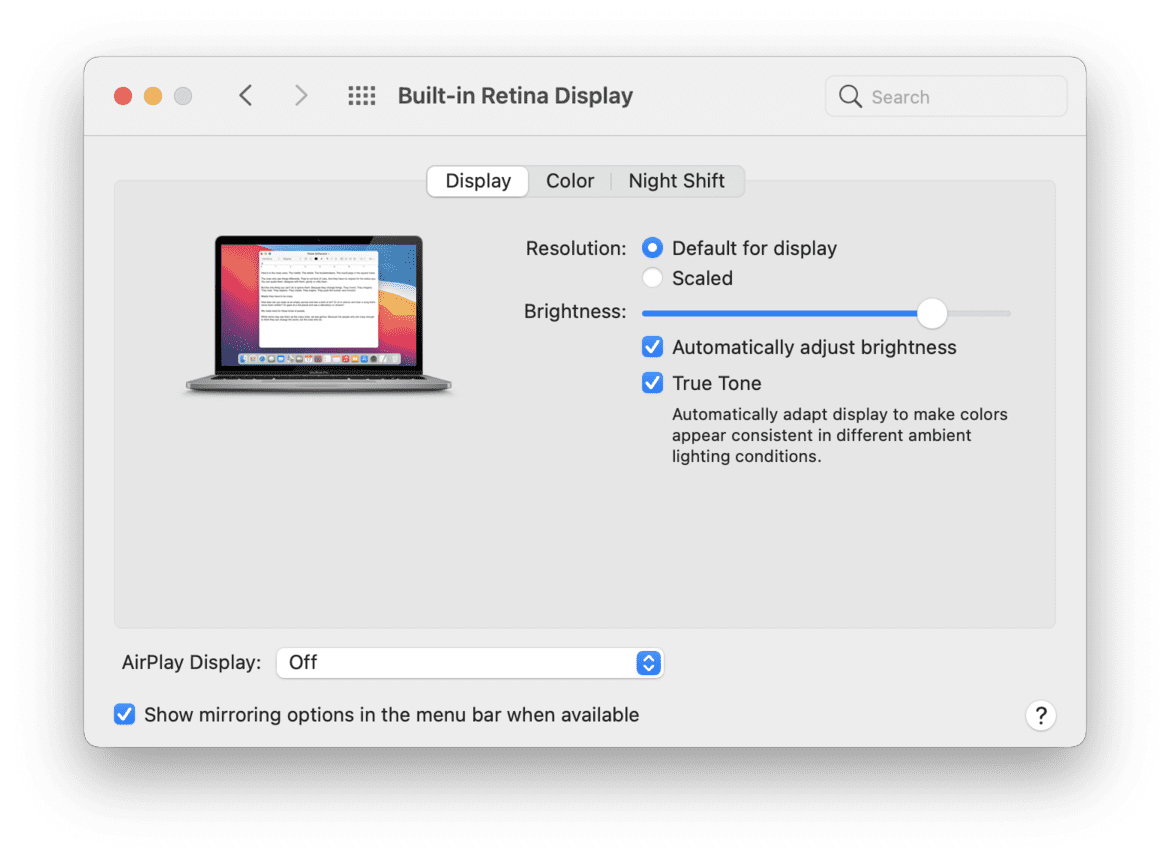
6. Count your battery cycles
Battery cycles are a number of charge-discharge phases the MacBook battery can take in its life. Yes, this is a relatively fixed number. Count cycles are much more informative in terms of battery health than your basic charge indicator.
Open Apple menu > About this Mac > System report.
Scroll down for Power specifications.

The average MacBook battery can go through 1000 cycles.
7. Clean up your Mac
Mac battery benefits from various forms of cleaning. Why? Because the cluttered hard drive uses more CPU resources. The more strain on the CPU, the more it affects and eventually wears off your battery. There are dozens of pretty good tools to remove hidden junk from Mac. Still, my personal favorite is CleanMyMac X. It's so enjoyable to use even for such a trivial operation as deleting junk files.
- Download CleanMyMac X — here's a link to a free edition
- Click on the System Junk tab
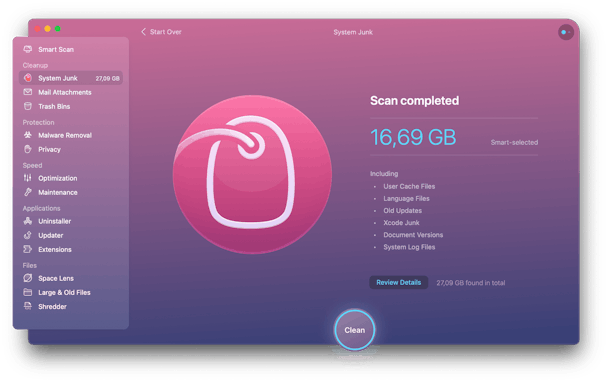
As you can see, I removed 18.9 GB worth of useless files: caches, broken downloads, localizations, etc.
Sit back and know that with a tidy Mac, with it free from all of the clutter of years of use — and a monitoring system in place to look after it — your battery should be operating at optimum levels again.
How To Clean A Macbook Of Viruses
Source: https://macpaw.com/how-to/fix-mac-battery-problems
Posted by: croslandrappers.blogspot.com

0 Response to "How To Clean A Macbook Of Viruses"
Post a Comment